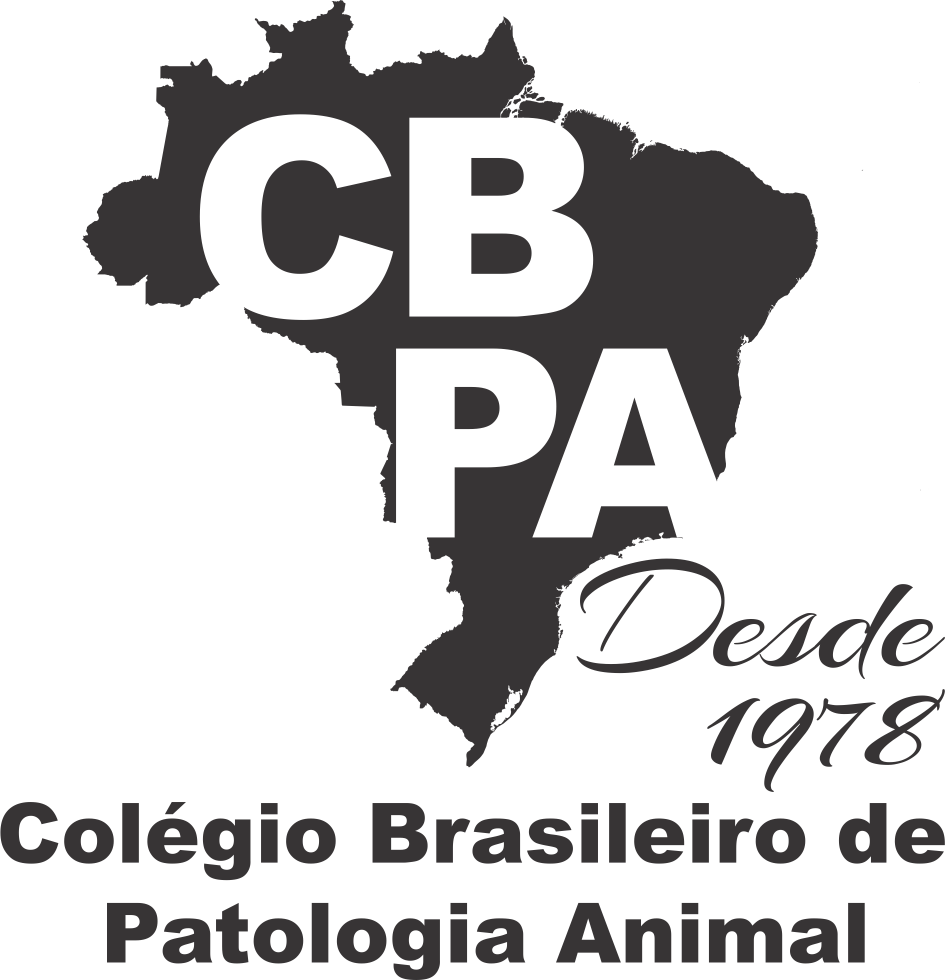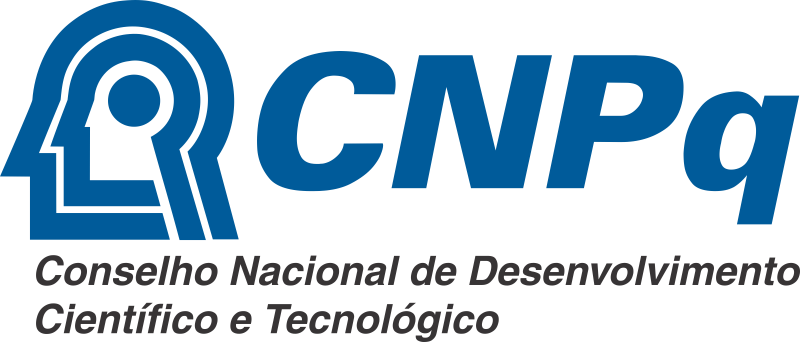Resultado da pesquisa (2)
Termo utilizado na pesquisa Kraieski A.L.
#1 - Evaluation of immune response of the intestinal mucosa in broilers challenged with different Salmonella serovars, 35(3):241-248
Abstract in English:
ABSTRACT.- Muniz E.C., Pickler L., Lourenço M.C., Kraieski A.L., Mesa D., Westphal P. & Santin E. 2015. [Evaluation of immune response of the intestinal mucosa in broilers challenged with different Salmonella serovars.] Avaliação da resposta imunológica da mucosa intestinal de frangos de corte desafiados com diferentes sorovares de Salmonella. Pesquisa Veterinária Brasileira 35(3):241-248. Laboratório de Microbiologia e Ornitopatologia, Departamento de Medicina Veterinária, Universidade Federal do Paraná, Rua dos Funcionários 1540, Curitiba, PR 80035-050, Brazil. E-mail: eduardo.muniz@ufpr.br
The study was designed to compare the effect of different Salmonella serovars in immune response across the count of CD8+ cells, CD4+ cells, goblet cells and macrophages in the gut mucosa of broilers. During the experimental inoculation at 7 day-old were used Salmonella enterica subspecies enterica sorovars Enteritidis, Typhimurium, Senftenberg, Mbandaka and Minnesota. It was observed that all serovars tested were capable of contaminating the poultry being possible counts of Salmonella in cloacal swabs, 48 h after inoculation and into the crop and cecum, at 14 and 20 day-old. Serovars tested had different effects on broiler performance assessed at 20 days. In the mucosa of the ileum and cecum of broilers, it was observed that some of the serotypes increased CD8 + cells, CD4 + cells, goblet cells and macrophages compared to the negative control group both at 14 and at 20 day-old. S. Enteritidis and S. Typhimurium are the serovars that showed the more intense effect in live performance and in the immune system of birds showing pathogenic characteristic; generally the broilers of the negative control showed significantly less immune cells on the intestinal mucosa than broilers inoculated experimentally. However, it was found that the Salmonella serovars used in this study had different effects on the cellular dynamics of the mucosa of the ileum and cecum and differently affect weight gain and average daily gain of poultry showing different levels of pathogenicity.
Abstract in Portuguese:
RESUMO.- Muniz E.C., Pickler L., Lourenço M.C., Kraieski A.L., Mesa D., Westphal P. & Santin E. 2015. [Evaluation of immune response of the intestinal mucosa in broilers challenged with different Salmonella serovars.] Avaliação da resposta imunológica da mucosa intestinal de frangos de corte desafiados com diferentes sorovares de Salmonella. Pesquisa Veterinária Brasileira 35(3):241-248. Laboratório de Microbiologia e Ornitopatologia, Departamento de Medicina Veterinária, Universidade Federal do Paraná, Rua dos Funcionários 1540, Curitiba, PR 80035-050, Brazil. E-mail: eduardo.muniz@ufpr.br
Objetivou-se com o presente estudo comparar o efeito de diferentes sorovares de Salmonella na resposta imune local da mucosa do intestino de frangos de corte. Aos sete dias de idade, as aves foram desafiadas com os sorovares S. Enteritidis, S. Typhimurium, S. Senftenberg, S. Mbandaka e S. Minnesota. Foi observado que todos os sorovares testados foram capazes de colonizar o intestino das aves sendo possível o isolamento de Salmonella em suabes de cloaca, 48 h após inoculação. De maneira geral, as aves do grupo controle negativo, que não foram desafiados apresentaram quantidade significativamente menor de células imunológicas na mucosa intestinal do que as aves desafiadas. Porém, verificou-se que os sorovares de Salmonella, utilizados neste estudo, apresentaram diferentes efeitos sobre a dinâmica celular da mucosa do íleo e ceco e afetaram de modo diferente o ganho de peso e ganho médio diário das aves demonstrando distintos graus de patogenicidade. Os sorovares Enteritidis e Typhimurium apresentaram um efeito mais intenso tanto no desempenho quanto na mobilização de células imunológicas na mucosa intestinal de frangos de corte.
#2 - Use of probiotics on the T cells activation and Salmonella Minnesota control in broiler chickens, 33(1):11-14
Abstract in English:
ABSTRACT.- Lourenço M.C., Kuritza L.N., Westphal P., Miglino L.B., Pickler L., Kraieski A.L. & Santin E. 2013. [Use of probiotics on the T cells activation and Salmonella Minnesota control in broiler chickens.] Uso de probiótico sobre a ativação de células T e controle de Salmonella Minnesota em frangos de corte. Pesquisa Veterinária Brasileira 33(1):11-14. Laboratório de Microbiologia e Ornitopatologia, Departamento de Medicina Veterinária, Universidade Federal do Paraná, Rua dos Funcionários 1540, Curitiba, PR 80035-050, Brazil. E-mail: santin@ufpr.br
To evaluate the effect of probiotics on the immune response of broiler chickens challenged with Salmonella Minnesota (SM), 60 chickens were divided into three groups: CN - Birds that were not inoculated with SM (negative control), CP - birds inoculated with SM (positive control) and Probiotic- birds supplemented with probiotic consisting of Lactobacillus acidophilus, L. plantarium, L. rhamnosus, L. bulgaricus, Enterococcus faecium, Streptococcus thermophilus and Bifidobacterium bifidum in diet and inoculated with SM. At 14 days the birds were challenged with SM, and at 7 and 35 days were quantified goblet cells, CD4 + and CD8 + intestinal mucosa of the ileum and cecum. Birds supplemented with probiotics, at 7 days of age showed a significant increase (P≤0.05) of goblet cells in the ileum and CD4 + and CD8 + cells in the cecum. At 35 days there were significant (P≤0.05) of CD8 + cells in birds inoculated on CN and Probiotic. The use of probiotics provided a significant reduction (P≤0.05) of Salmonella sp. counts.
Abstract in Portuguese:
RESUMO.- Lourenço M.C., Kuritza L.N., Westphal P., Miglino L.B., Pickler L., Kraieski A.L. & Santin E. 2013. [Use of probiotics on the T cells activation and Salmonella Minnesota control in broiler chickens.] Uso de probiótico sobre a ativação de células T e controle de Salmonella Minnesota em frangos de corte. Pesquisa Veterinária Brasileira 33(1):11-14. Laboratório de Microbiologia e Ornitopatologia, Departamento de Medicina Veterinária, Universidade Federal do Paraná, Rua dos Funcionários 1540, Curitiba, PR 80035-050, Brazil. E-mail: santin@ufpr.br
Para avaliar o efeito do probiótico sobre a resposta imunológica de frangos de corte desafiados com Salmonella Minnesota (SM), 60 frangos foram divididos em três grupos: CN- (controle negativo) aves que não foram inoculadas com SM, CP- (controle positivo) aves inoculadas com SM e Probiótico- aves suplementadas na ração com probiótico composto de Lactobacillus acidophilus, L. plantarium, L. rhamnosus, L. bulgaricus, Enterococcus faecium, Streptococcus thermophilus e Bifidobacterium bifidum e desafiadas com SM. Aos 14 dias foi realizada a inoculação com SM e aos 7 e 35 dias foram quantificadas células caliciformes, CD4+ e CD8+ na mucosa intestinal do íleo e ceco. Aves suplementadas com probióticos aos 7 dias de idade apresentaram aumento significativo (P≤0,05) de células caliciformes e CD4+ no íleo e de células CD8+ no ceco. Aos 35 dias houve aumento significativo (P≤0,05) das células CD8+ nas aves inoculadas do CN e Probiótico. A utilização de probióticos proporcionou redução significativa (P≤0,05) da contagem de Salmonella sp.









